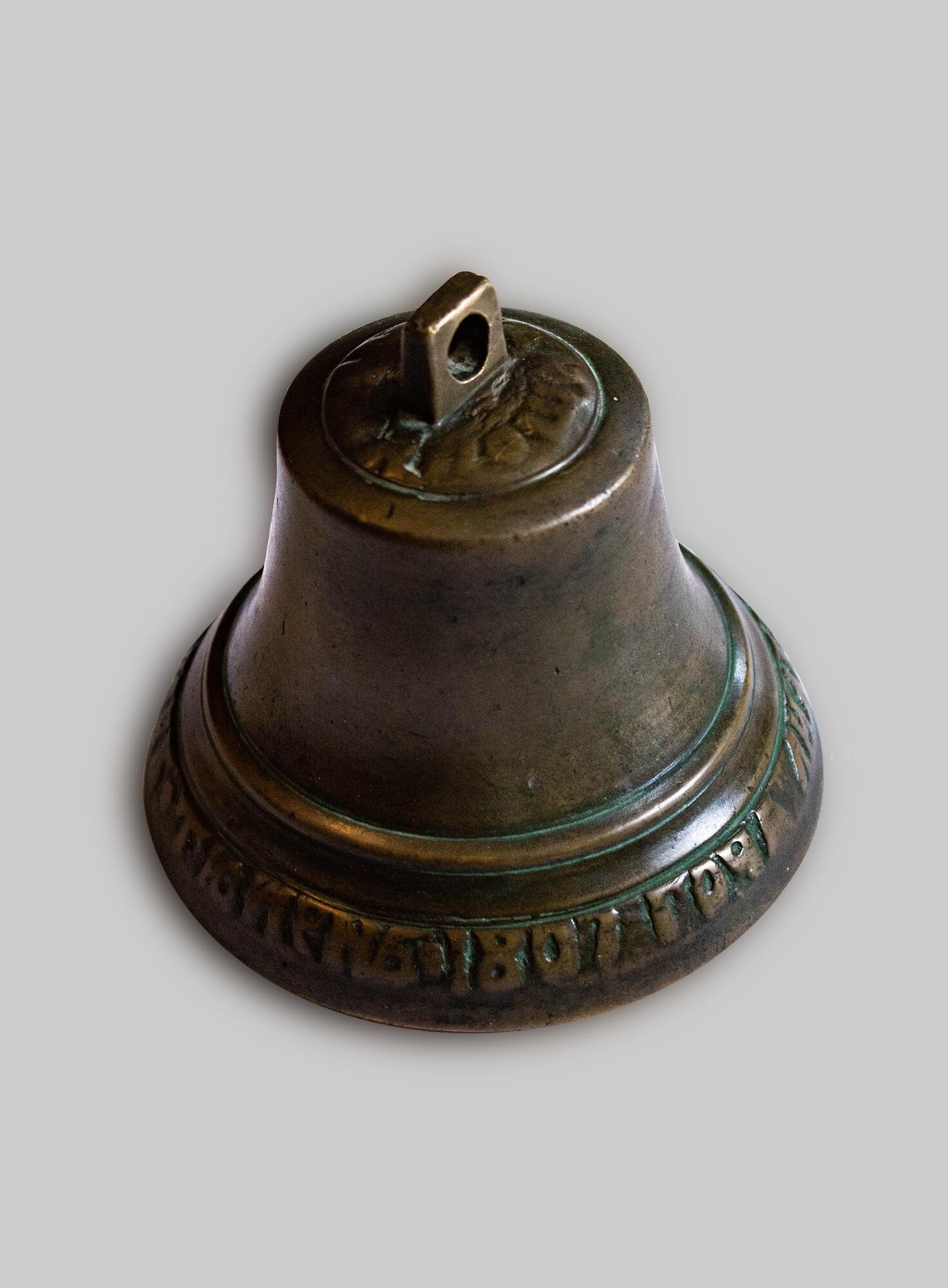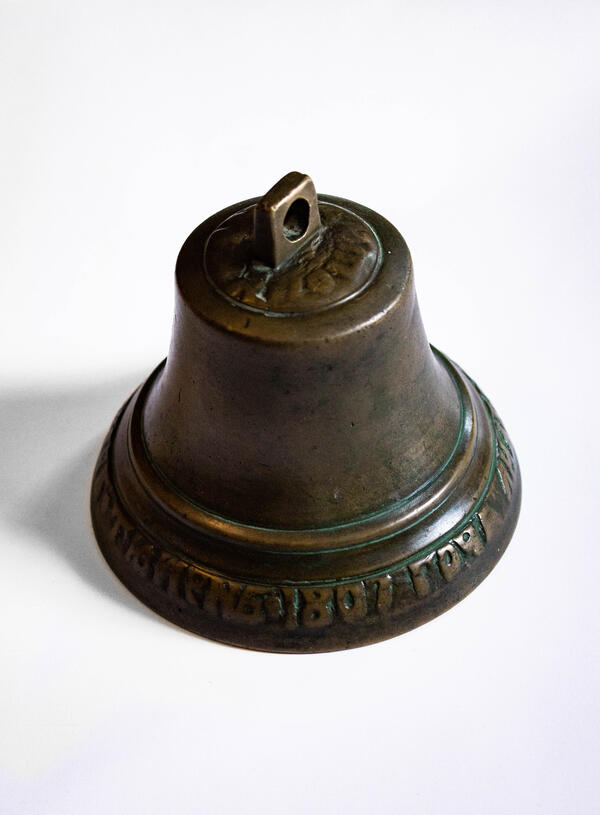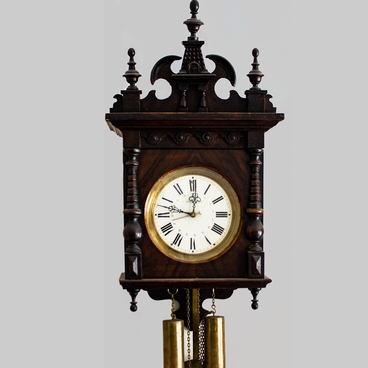Coachman bells used as part of horse harness were very common in Russia. They differed in shape, size and sound volume. Shaft bow bells were the biggest and the most elegant of them. The exhibit belongs to this category.
Such a bell was attached under the shaft bow of a post horse’s harness, hence the name “shaft bow”. The bell had a primarily signal function and ensured priority passage: the ringing warned pedestrians and other carriages that a postal carriage was approaching. Consequently, the bell became the symbol of the postal service.
In the 19th century, riding three-horse carriages with bells became very popular among private owners. Numerous complaints from the postal department against those riding with bells resulted in the Senate Decree of 1836, which said: “The use of bells is prohibited to all those who ride private or hired horses, and is reserved to postal deliveries and the officials of the regional police”.
The city of Valdai, Novgorod Governorate, became the first manufacturing center of shaft bow bells. The first dated Valdai bell was cast in 1802. Following Valdai, production of coachman bells began in Tyumen, Kasimov, Purekha. On the old bells, one can find inscriptions like: “Ride — rush, ring — shush, ” “It rings not just for amusement but for a speedy ride, ” or “Lots of ringing sends your ride careening”.
Characters from the novel “PodlIpovtsy” by the Urals writer Fyodor Reshetnikov, peasants Pila and Sysoyko, were not accustomed to the sound of the bell: it startled and confused them. Having gained their freedom in search of a better life, they set off to work as barge haulers, and on the way they saw numerous “wagons with warm fur coats”, which left the ringing of bells behind them. The podlIpovtsy “stood in one place for a long while, looking at the retreating wagon”. Here, the bell serves two purposes: it symbolizes the road and the life unknown to the villagers.
For some of Reshetnikov’s characters, the shaft bow bell is a glum companion in hard work. For example, postman Maksya from the eponymous short story, who goes with the coachmen on long-distance journeys, is chilled through and through by the wind and exhausted by the bumpy road. ‘When they stopped, the bells' ringing lingered in Maksya’s ears, and it seemed to him as if he was swaying back and forth’.
Such a bell was attached under the shaft bow of a post horse’s harness, hence the name “shaft bow”. The bell had a primarily signal function and ensured priority passage: the ringing warned pedestrians and other carriages that a postal carriage was approaching. Consequently, the bell became the symbol of the postal service.
In the 19th century, riding three-horse carriages with bells became very popular among private owners. Numerous complaints from the postal department against those riding with bells resulted in the Senate Decree of 1836, which said: “The use of bells is prohibited to all those who ride private or hired horses, and is reserved to postal deliveries and the officials of the regional police”.
The city of Valdai, Novgorod Governorate, became the first manufacturing center of shaft bow bells. The first dated Valdai bell was cast in 1802. Following Valdai, production of coachman bells began in Tyumen, Kasimov, Purekha. On the old bells, one can find inscriptions like: “Ride — rush, ring — shush, ” “It rings not just for amusement but for a speedy ride, ” or “Lots of ringing sends your ride careening”.
Characters from the novel “PodlIpovtsy” by the Urals writer Fyodor Reshetnikov, peasants Pila and Sysoyko, were not accustomed to the sound of the bell: it startled and confused them. Having gained their freedom in search of a better life, they set off to work as barge haulers, and on the way they saw numerous “wagons with warm fur coats”, which left the ringing of bells behind them. The podlIpovtsy “stood in one place for a long while, looking at the retreating wagon”. Here, the bell serves two purposes: it symbolizes the road and the life unknown to the villagers.
For some of Reshetnikov’s characters, the shaft bow bell is a glum companion in hard work. For example, postman Maksya from the eponymous short story, who goes with the coachmen on long-distance journeys, is chilled through and through by the wind and exhausted by the bumpy road. ‘When they stopped, the bells' ringing lingered in Maksya’s ears, and it seemed to him as if he was swaying back and forth’.




